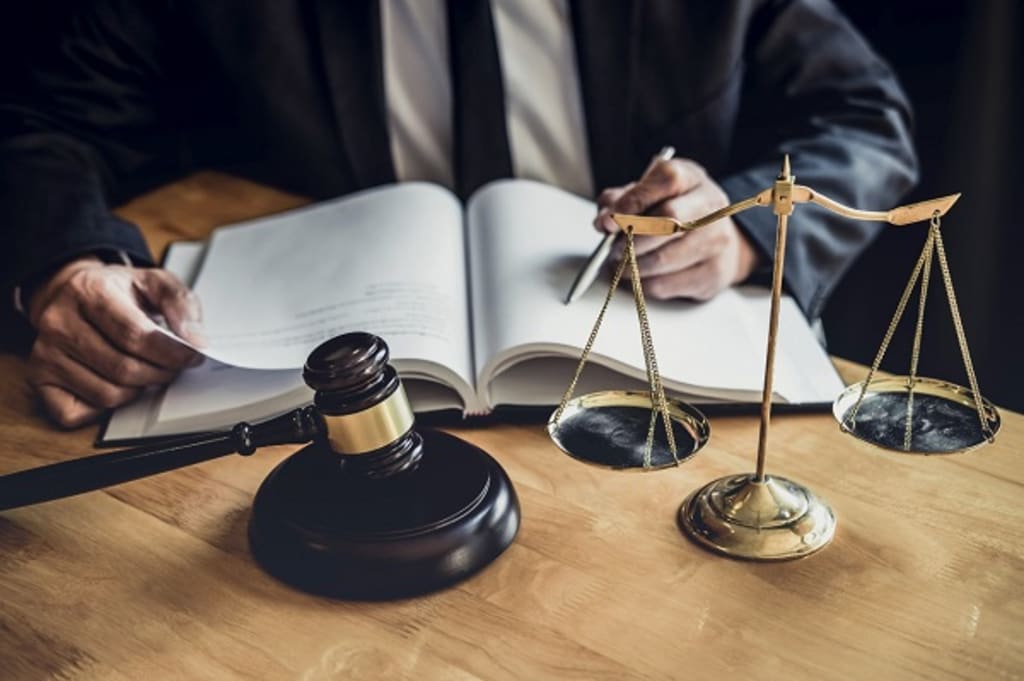Navigating the Legal Maze: Tips for Finding and Hiring the Right Lawyer
Finding and hiring a good lawyer is crucial when you're faced with legal issues or seeking legal advice.

Finding and hiring a good lawyer is crucial when you're faced with legal issues or seeking legal advice. However, the process can be overwhelming, especially if you're not familiar with the legal field. In this article, we will provide you with valuable tips and insights on finding and hiring a good lawyer to ensure that you make an informed decision and receive the best legal representation possible.
Assess the Nature of Your Legal Issue
The first step in finding and hiring a good lawyer is to assess the nature of your legal issue. Clearly understanding the details and complexities of your situation will help you determine the specific legal expertise required.
For example, if you're dealing with a divorce, you may need a family law attorney, while a business dispute may require a commercial litigation lawyer. By evaluating the nature of your legal issue, you can narrow down your search for the right lawyer.
Consider Specialization and Expertise
In addition to identifying the type of lawyer, it's important to consider specialization and expertise. Some lawyers choose to specialize in specific areas within a practice area. For example, within the field of personal injury law, there may be lawyers who specialize in medical malpractice or car accident cases. By considering specialization, you can find a lawyer who has deep knowledge and experience in the specific aspects of your legal issue. This specialization can often make a significant difference in the outcome of your case.
Research and Gather Information
This step is crucial as it allows you to make an informed decision and find a lawyer who is well-suited to handle your case. Here are some key aspects to consider during your research:
Seek recommendations from trusted sources
Start by seeking recommendations from trusted sources, such as friends, family, or colleagues who have had positive experiences with lawyers in the past. Their insights and recommendations can provide valuable leads and help you narrow down your options.
Utilize online resources
Make use of online resources, including legal directories, law firm websites, and online reviews, to gather information about lawyers in your area. Review their profiles, areas of practice, and any additional information provided.
Check local bar association websites
Most reputed bar associations maintain directories of licensed lawyers in their jurisdiction. These directories often provide information about lawyers' credentials, disciplinary records, and areas of practice. Checking these websites can help you verify a lawyer's credentials and ensure they are in good standing.
Read client reviews and testimonials
Take the time to read client reviews and testimonials about lawyers you are considering. These reviews can provide insights into the lawyer's professionalism, communication skills, and overall client satisfaction. However, it's important to consider a range of reviews and not rely solely on one or two opinions.
Evaluate Experience and Track Record
Determine the lawyer's experience level
When evaluating a lawyer, it's important to assess their experience level. Consider how long they have been practicing law, particularly in the relevant practice area. Experience often brings a deep understanding of the legal system, knowledge of precedents, and familiarity with courtroom procedures. An experienced lawyer is more likely to have encountered a wide range of legal issues and developed effective strategies for handling cases.
Assess their success rate in similar cases
One crucial aspect of evaluating a lawyer is assessing their success rate in handling cases similar to yours. Inquire about their track record and ask for specific examples of cases they have handled that are comparable to yours.
Understanding their success rate and outcomes will give you an idea of their ability to achieve favorable results for their clients. However, it's important to note that past success does not guarantee future outcomes, as each case is unique.
Verify their reputation and standing in the legal community
Verifying a lawyer's reputation and standing in the legal community can provide insights into their professionalism and credibility. Look for indicators such as peer recognition, awards, honors, or leadership positions within professional organizations.
Arrange Initial Consultations
Prepare a list of questions and concerns
Before meeting with potential lawyers, it is crucial to prepare a list of questions and concerns that you would like to discuss during the consultation. This list should cover important aspects of your case, legal fees, the lawyer's approach, and any other specific concerns you may have. By preparing in advance, you can ensure that you address all relevant topics and gather the necessary information to make an informed decision.
Schedule consultations with multiple lawyers
It is recommended to schedule consultations with multiple lawyers to compare their approaches, expertise, and overall fit for your case.
Meeting with different lawyers allows you to assess their suitability and get a sense of their personalities and communication styles. This step is essential in finding a lawyer with whom you feel comfortable and confident in their abilities to handle your case effectively.
Evaluate communication and responsiveness
During the initial consultation, pay close attention to the lawyer's communication skills and responsiveness. Assess how well they listen to your concerns, answer your questions, and explain complex legal concepts in a clear and understandable manner.
A good lawyer should demonstrate effective communication skills and show genuine interest in understanding your needs. Additionally, consider their responsiveness to your inquiries and how promptly they address your concerns. A lawyer who is responsive and communicative is more likely to provide a high level of service throughout your case.
Assess their understanding of your case
An important aspect of the initial consultation is to assess the lawyer's understanding of your case. They should demonstrate a clear grasp of the relevant legal issues, potential challenges, and possible strategies for your situation.
A lawyer who shows a comprehensive understanding of your case can offer insights and recommendations that align with your goals and increase your confidence in their ability to represent you effectively.
Discuss Fees and Billing Structure
Inquire about fee arrangements during the consultation
During the initial consultation with a lawyer, it is important to inquire about their fee arrangements. Ask how they structure their fees and whether they charge an hourly rate, a flat fee, or work on a contingency basis.
Understanding the fee structure upfront allows you to assess the financial implications of hiring the lawyer and determine if it aligns with your budget and expectations.
Understand the lawyer's billing structure and payment terms
In addition to the fee arrangements, it is crucial to understand the lawyer's billing structure and payment terms. Inquire about how frequently they bill clients (monthly, quarterly, etc.) and the accepted methods of payment.
Some lawyers may require an upfront retainer fee, while others may bill for services rendered at the end of each billing cycle. Understanding the billing structure and payment terms helps you anticipate and plan for the financial obligations associated with your case.
Clarify additional costs and expenses
Aside from the lawyer's fees, it is essential to clarify any additional costs and expenses that may be incurred throughout the legal process. For example, there may be court filing fees, expert witness fees, travel expenses, or administrative costs. Ensure that you have a clear understanding of what additional costs may arise and how they will be billed.
Conclusion
Finding and hiring a good experienced lawyer requires careful consideration and research. By following the tips outlined in this article, you can increase your chances of finding a competent and reliable legal professional who can effectively represent your interests. Consider partnering with a trusted law firm in India who can navigate the legal intricacies on your behalf, making your legal journey a stress-free experience. Remember to take your time, evaluate your options to make an informed decision that will lead to a successful outcome in your legal matters.
About the Creator
Praveen Palkhade
I have been building and ranking websites since 2008. Over the years I've gotten to be quite masterful at my web design on many different CMS platforms.






Comments
Praveen Palkhade is not accepting comments at the moment
Want to show your support? Send them a one-off tip.